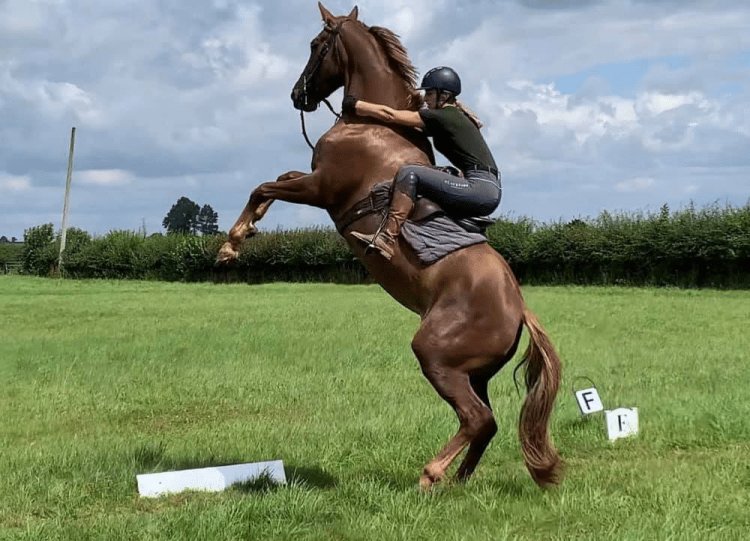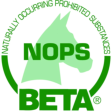in basket
Happy New Year from Team Premier Performance!
Keep calm and carry on: how and when to use horse calmers

As we have talked about in previous articles, horses are highly reactive, flighty and naturally cautious animals for very good reasons. In the wild, horses need to be able to respond quickly to any potential threat and that involves always being alert and able to run from danger at any time. Whilst these behaviours are required in the wild, they’re not ideal from a training and handling perspective in the domesticated horse.
Therefore, we use training techniques to develop the “well adjusted” horse that is able to cope with the many demands placed upon it. This training relies on the horse being well socialised, having positive early life experiences, being gradually weaned and being desensitised and habituated to potentially threatening situations. The foregoing allows the horse to become flexible in his/her behavioural responses due to low fear levels. A well-adjusted horse that has low stress levels is also more able to learn and is therefore more trainable.
The excitable/nervous horse
Firstly, when considering your horse’s behaviour, it’s important to appreciate their age and level of training; for example, a young, inexperienced youngster is likely to be anxious during a first outing away from home. For more experienced horses, an anxious horse can develop behaviours that affect their behaviour, making them more difficult to handle or train. A horse that is difficult to work with or ride can be more at risk of injuring themselves or the person handling or riding them. Therefore, it is important to try and resolve this.
The first approach to calming your horse is to assess its management and training, sometimes a simple change in these areas can resolve any issues. In terms of management, it can be helpful to consider your horse’s diet. As discussed in previous articles, feedstuffs containing starch can impact on your horse’s behaviour, many studies have shown a link between diets containing starch and an increased undesirable reactivity (e.g. spooking). If, after adjusting any diet and/or management issues that may be contributing to the behaviour you find that your horse is still anxious, and you have consulted your vet on any possible health issues that may be related to this, then you may want to consider the use of a calmer.
Using horse calmers
There are various types of calmers available for horses with a range of ingredients in them. Here we look at three common constituents found in horse calmers.
Magnesium is a trace element and is often the most common ingredient in many calming supplements. The form of magnesium affects how much is absorbed from the gastrointestinal tract and used by the animal, which is also known as bioavailability. For example, inorganic magnesium oxide has low bioavailability compared to an organic form, such as magnesium citrate. There is some evidence in mice that magnesium may have an anti-depressant type of effect and may also reduce anxiety. Research studies to date have suggested that magnesium-rich supplements may reduce heart rate and reactivity in horses. There is also some evidence of efficacy when magnesium is fed alongside other herbal substances. However, studies in horses are limited and further work is required.
Another common ingredient in horse calmers is tryptophan, which is an amino acid that’s primary role is to act as a precursor for serotonin (a neurotransmitter). Serotonin has a wide range of functions in the body but is mostly found in the digestive system. It acts on almost every part of the body, from the gastrointestinal tract to the brain. In the gastrointestinal tract, serotonin regulates the movement of food through the gut. In the brain, serotonin is thought to play a role in regulating anxiety. An increase in serotonin in the brain has been associated with reduced anxiety and increased learning and memory in several species. Serotonin also contributes to an animals sense of satiation (satisfaction), which directly impacts behaviour. For example, if a horse is satisfied with available resources (e.g. food) then it recognises that it doesn’t have to fight for resources, which can impact on behaviour. However, research studies to date have not established these effects for the horse.
Tyrosine is another amino acid that is included in some calming supplements and is a precursor for the neurotransmitter’s dopamine, adrenaline and noradrenaline. These factors play an important role in learning, memory, behaviour, attention and mood. In humans, supplementing with tyrosine has been seen to improve stress-induced cognitive and behaviour deficits, particularly in relation to working memory and attention focussed tasks. During periods of stress the brain releases a stress signal to the body by pumping adrenaline into the bloodstream. This makes the heart beat faster than normal, pushing blood to the muscles, heart and other vital organs. The airways also open wide so that the lungs can inhale as much oxygen as possible. Sight, hearing and other senses also become sharper and blood sugar (glucose) levels rise as the body releases energy stores. Stress depletes the brain’s stores of neurochemicals involved in memory, focus and learning. When stressed horses produce more adrenaline, this can also deplete tyrosine levels. A shortage of tyrosine appears to lead to insufficient levels in the brain and this is thought to result in behavioural issues. Therefore, it’s not that tyrosine increases the production of these neurochemicals, rather it replaces depleted stores. Indeed, studies in animals and humans have found tyrosine to help alleviate the behavioural consequences of stress. Again, further research is required to ascertain the effects of this in the horse.
Summary
Managing an excitable horse can be challenging, but also very rewarding. Through careful management, training and nutritional support, an excitable and nervous horse can be transformed into a trainable and calmer individual. Evidence suggests that mimicking the horse’s natural eating patterns as far as is practically possible by lowering starch intake, increasing fibre intake, and feeding little and often, is extremely beneficial in alleviating/reducing many unwanted behaviours. Therefore, efforts should be direct towards balancing the provision of a diet that meets the nutrient requirements of the horse with satisfying the behavioural needs of an animal designed to eat a low-quality, high-fibre diet on an almost continual basis. Adding a calmer to your horse’s diet may also be beneficial for those times where your horse is experiencing anxiety, which is impacting on his or her behaviour.
Premier Performance CZ’s calming cookies and calming powder are designed to complement good management and training practices by enhancing the trainability and handling of your horse, especially at times of stress; for example, travelling and competing as well as vet and farrier visits. Our innovative formula helps your horse to stay calm, focused and confident. They do not sedate or effect gait, they take the edge off but not the sparkle. Our calmers are a powerful and unique combination of herbs and amino acids which do not contain valerian, magnesium or tryptophan and they are competition-safe.
Article written for Premier Performance by Professor Jo-Anne Murray.








